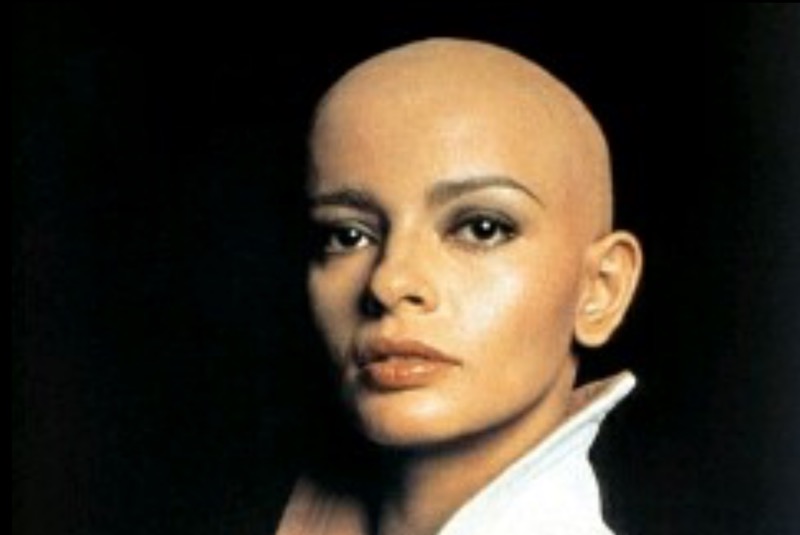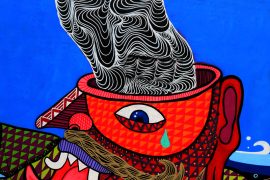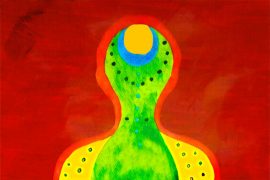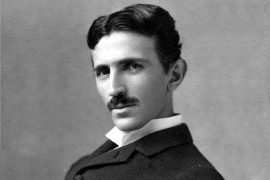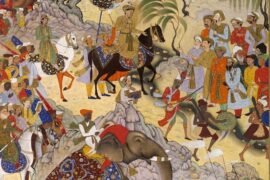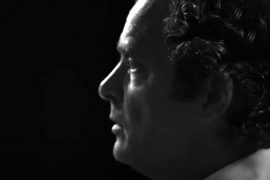When Persis Khambatta starred as Lieutenant Iliana in the film Star Trek (1979), people applauded her for her boldness—she played a bald character and yet exuded confidence and sex appeal. While Persis gained fame and managed to get her foot through the door in Hollywood, her career is marked by the woes of an immigrant who struggled to find a place on the podium.
Khambatta was born in Mumbai on 2nd October 1946 in a family of textile manufacturers. However, her parents — Feroz Khambatta (father) and Jeroo Sethna (mother) — divorced soon after her birth in 1948, and her mother raised Persis alone.
Her career began with modelling at the age of thirteen. Within three years, at sixteen, in the year 1965, she was crowned Miss India. Khambatta also acted in a few Bollywood films, starting with K.A. Abbas’ Bambai Raat Ki Bahon Mein in 1968, where she played a cabaret single. Soon, Khambatta left Bollywood to pursue a career as a model in London.
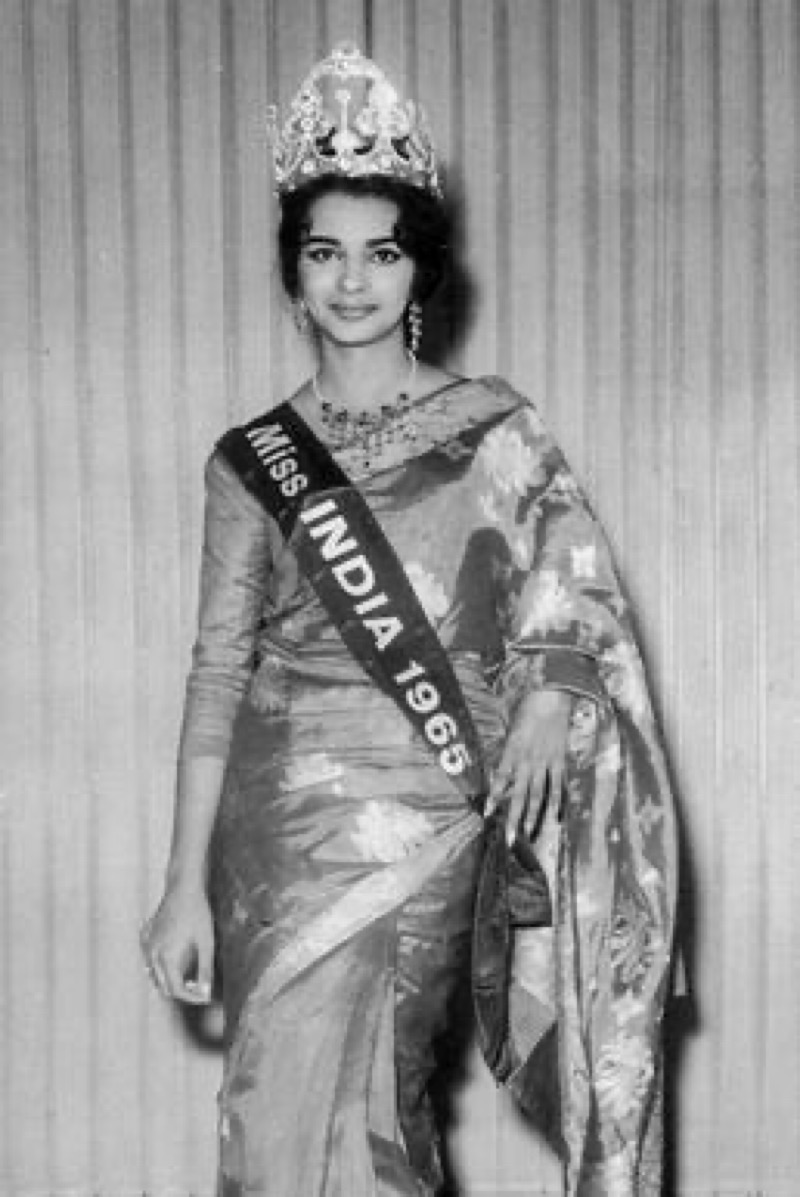
She chose the United Kingdom to start an international career over fashion hubs like Milan because she felt more comfortable with the country as she spoke English and found familiarity with English people.
In the United Kingdom, Khambatta starred in The Wilby Conspiracy in 1975, opposite Michael Caine and Sidney Pointer. She also shot Conduct Unbecoming the same year before flying to Hollywood.
Here, she signed and played her first American character, Lieutenant Ilia, the role of Deltan navigator, in Star Trek: The Motion Picture. What was meant to be a five-year TV series contract was changed to a movie. Persis was thrilled, as she knew that a movie would be her big break; however, she had lost five years’ worth of work.
She was chosen from 600 actresses who had applied for the role. She immediately agreed when the director asked if she would shave her head for the role.
“I didn’t have a problem with it at all,” Khambatta had said during her last interview before she passed away. “It’s just a part of my work. If I want to do the part, I will do it. I did not think it was going to look bad.”
Khambatta’s character, although bald, oozed sex appeal. Her boldness became the topic of chatter all around the world. However, Khambatta did not score as many movies as she could have from the success.
“One thing about me, as far as my career is concerned, is that I’m very confident. I know I am good. Having shaved my head for the role put a spotlight on me. After Star Trek, I was with the top agencies, but producers and directors did not know what to make of me.”
Khambatta struggled to find the right roles for herself. She turned down many roles because she refused to appear on screen naked, but such roles were always coming to her because she was labelled “exotic.”
Khambatta admitted that many people called her exotic because they did not know her personality and came from a distant land. “You’re so exotic. You’re foreign, intelligent, beautiful, and it scares me to talk to you.”
Stephen Collins had said this to Khambatta while shooting Star Trek.
Even when Persis did not get a role in Charlie’s Angels, Nels Nelson provided a breakdown in Philadelphia Daily.He explained how other actors who had auditioned were not right because they were too foreign. Khambatta was termed explicitly as “Asian, much too exotic.”
Playboy had pursued Khambatta for ten years to pose nude for their magazines, but Khabatta had persistently turned it down. She said she wanted her country to be proud of her. She was confident that shaving herself would not taint her womanhood; however, posing nude would be held against her for the rest of her career.
Her assumptions are not in vain. Nastassja Kinski’s talent was overshadowed by her portrayal in the film Cat People, in which Kinski appeared naked on the camera. Surprisingly, Khambatta rejected the role for the same reason.
There were also only a few Indian portrayals in Hollywood movies, and that too was given to white actors who would pretend to be brown with darker makeup. Khambatta faced fierce challenges in Hollywood, bagging roles against the white counterparts of her profession. In 1983, she was considered for Octopussy, the James Bond film; however, she lost the role to Maud Adams.
“Everybody told me to stay in Hollywood. This was the place they said I could have a big career. What they failed to mention was that no one would quite know what to do with me. How many roles are there for actors with accents or foreign looks?” said Khambatta. “If there is an exotic woman it’s always the terrorist role.”
While in the United States, she vigorously campaigned for ethnic minorities to play the roles of ethnic characters. She was against being cornered by white men and women who played the parts with the use of make-up.
Khambatta did a few more films, such as Nighthawks, Warrior of the Lost World, and Mega Force. She was also briefly married to the actor and stuntman Cliff Taylor. The marriage lasted for two months before the couple divorced.
In 1980, Khambatta became the first Indian to present at the Oscars, the same year she had been in a car crash in Munich. After a decade, Khambatta decided to return to India. She worked on her book Pride of India, a pictorial featuring Miss Indias since the fifties, and it was released in 1997. The book is said to be inspired by one time when Khambatta was introduced to Indira Gandhi. When the Prime Minister’s entourage hesitated during Khambatta’s introduction, Gandhi said, “Who doesn’t know Persis? She is the pride of India.” The book is considered one of her great triumphs.
On 17 August 1998, Khambatta was rushed to Marine Hospital as she was experiencing a combination of chest pains, headaches, and vomiting. Doctors gave her some medicines and cleared her to go home. Around five in the following day, Persis was struggling to breathe. Soon after she was taken to the hospital, Khambatta was pronounced dead.
Many South Asian actors have found success in Hollywood, including Priyanka Chopra, who became the second Indian woman at the Oscars after Khambatta. Mindi Kaling has also made her place on the podium as a writer, producer, and star on the silver screen and television. While things might have changed in the film industry since Persis, horror stories of racism are unveiled when a woman of colour climbs the ladder of success. Khambatta’s comment on the American audience in her last interview remains true:
The American audience’s limited expectations cause Hollywood’s trepidation, and like an albatross, they limit the textural realism that today’s writer and director can create.
-30-
Copyright©Madras Courier, All Rights Reserved. You may share using our article tools. Please don't cut articles from madrascourier.com and redistribute by email, post to the web, mobile phone or social media.Please send in your feed back and comments to [email protected]

